How to Clean a Grill Without a Brush?
Grilling season is upon us, and there’s nothing quite like firing up the grill for some delicious BBQ. But what happens when you can’t find your grill brush, or you’re just not a fan of using one? No worries! There are plenty of effective ways on how to clean a grill without a brush.
Whether you’re looking for eco-friendly options, tools you already have at home, or simply a different approach, we’ve got you covered. Let’s dive into some tried-and-true methods for keeping your grill in top shape, so you can enjoy perfectly cooked meals all season long.
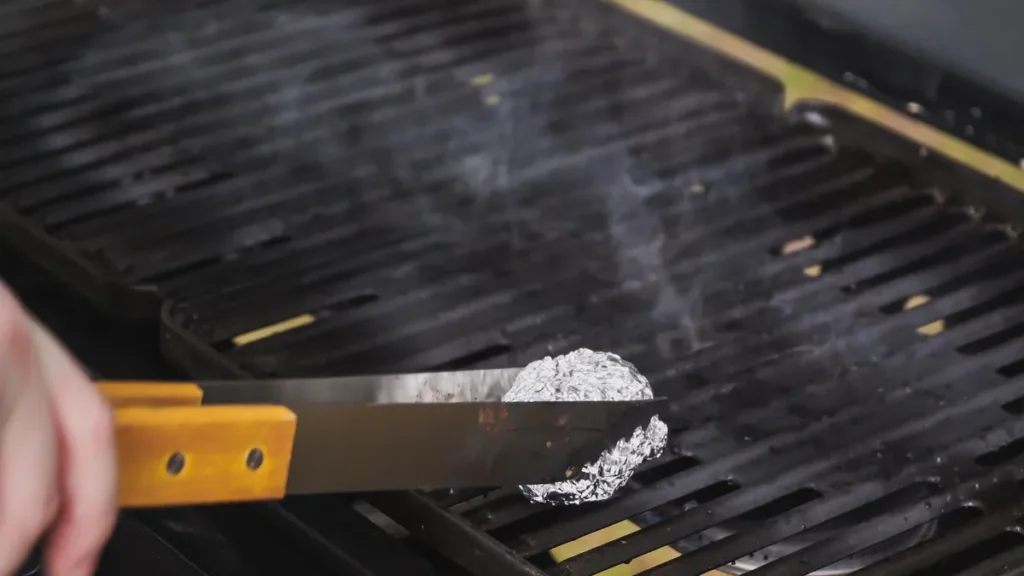
Why Avoid Brushes?
You might wonder, why bother ditching the trusty grill brush? Here are a few key reasons:
- Health Risks
- Wire bristles can break off: These tiny metal pieces can end up in your food.
- Ingestion hazards: Swallowing these bristles can cause severe health issues, including injuries to your mouth, throat, or digestive tract.
- Damage to Grill Grates
- Scratching and nicking: Wire brushes can scratch and damage grill grates, especially if they are porcelain-coated or made of delicate materials.
- Rust and decreased performance: Over time, these damages can lead to rust and negatively affect your grill’s performance.
- Alternatives to Wire Brushes
- There are many safe and effective methods to clean your grill without using a brush.
- These methods include household items and natural cleaners that keep your grill spotless without compromising safety or quality.
Essential Tools and Materials
Before we dive into the specifics, let’s gather the essential tools and materials you’ll need to clean your grill without a brush. Here’s a handy list:
- Aluminum foil
- Vinegar
- Baking soda
- Spray bottle
- Water
- Heat-resistant gloves
- Soft cloth or sponge
Aluminum Foil
Aluminum foil is a fantastic, simple tool for scrubbing your grill clean. Here’s how to use it:
- Heat the Grill: Fire up your grill and let it heat up for about 10-15 minutes. This will help loosen any stuck-on residue.
- Make a Foil Ball: Tear off a sheet of aluminum foil and crumple it into a ball. Ensure it’s large enough to grip comfortably.
- Scrub the Grates: Using heat-resistant gloves, grab the aluminum foil ball and scrub the grill grates. The foil’s rough texture effectively dislodges grime and food particles.
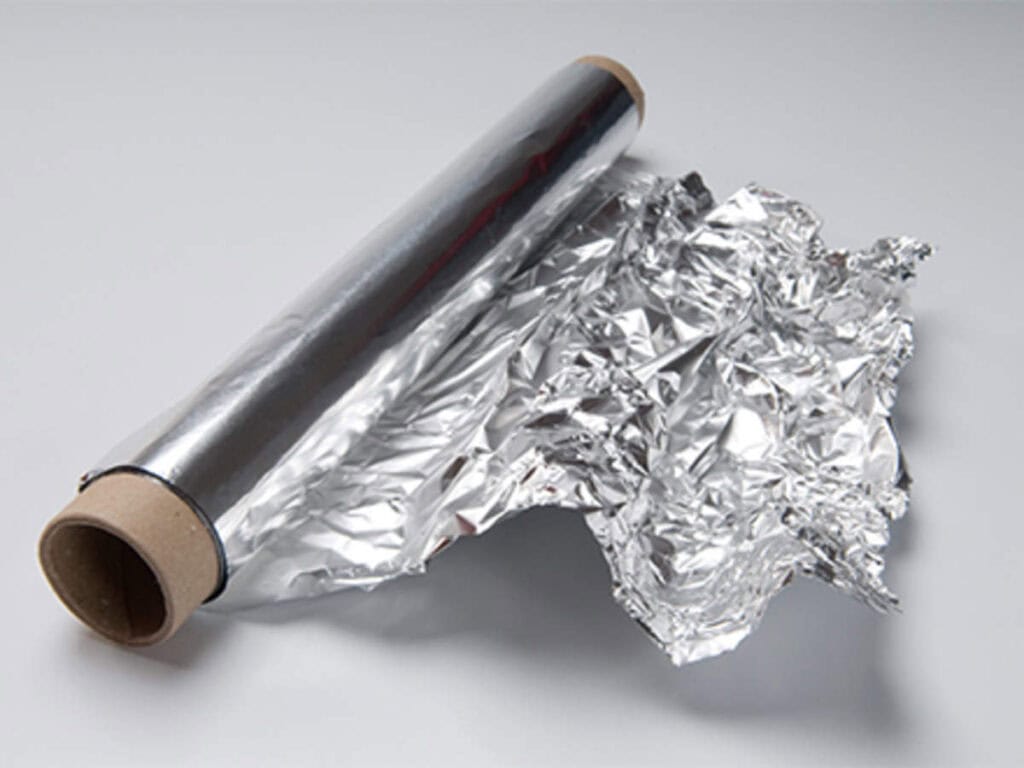
Vinegar Solution
A vinegar solution is an excellent natural cleaner that’s both effective and safe. Follow these steps:
- Mix the Solution: In a spray bottle, mix equal parts of water and white vinegar.
- Spray the Grates: Generously spray the vinegar solution onto the grill grates, ensuring they are thoroughly coated.
- Let it Sit: Allow the solution to sit for 10-15 minutes to break down grease and grime.
- Wipe Clean: Use a soft cloth or sponge to wipe the grates clean. For stubborn spots, apply a bit more vinegar solution and scrub again.
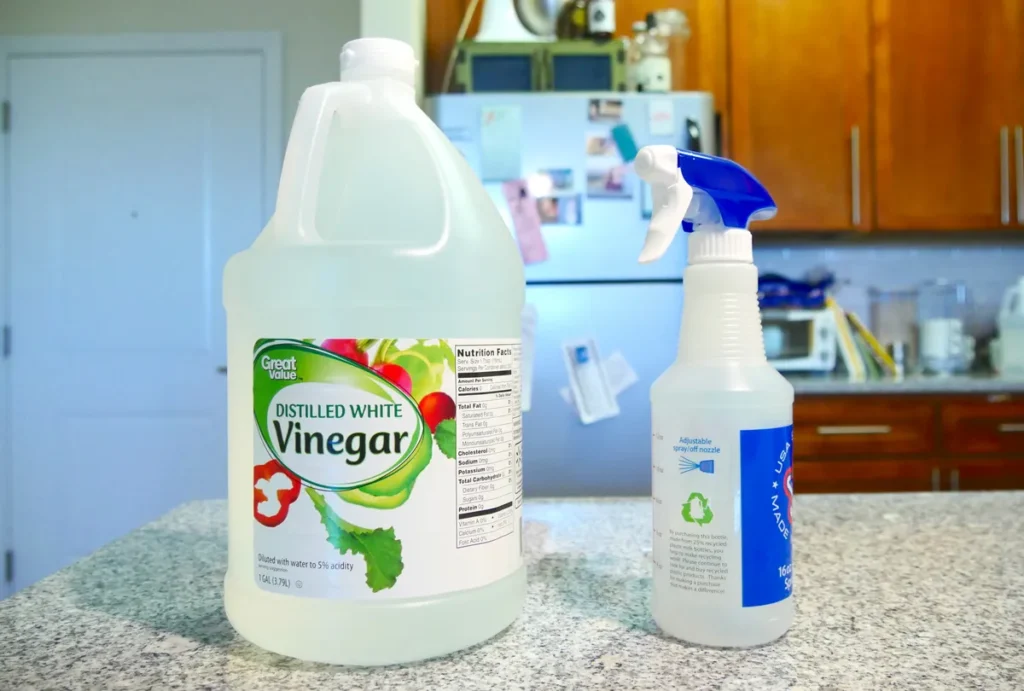
Baking Soda Paste
Baking soda is a powerful, non-toxic cleaner perfect for tackling tough grill residues. Here’s how to use it:
- Prepare the Paste: In a small bowl, mix baking soda with a bit of water to form a thick paste.
- Apply the Paste: Spread the paste over the grill grates, focusing on areas with stubborn residues.
- Let it Sit: Allow the paste to sit for about 15-20 minutes to penetrate and loosen the grime.
- Scrub and Rinse: Use a damp cloth or sponge to scrub the grates, then rinse with water to remove any remaining baking soda residue.
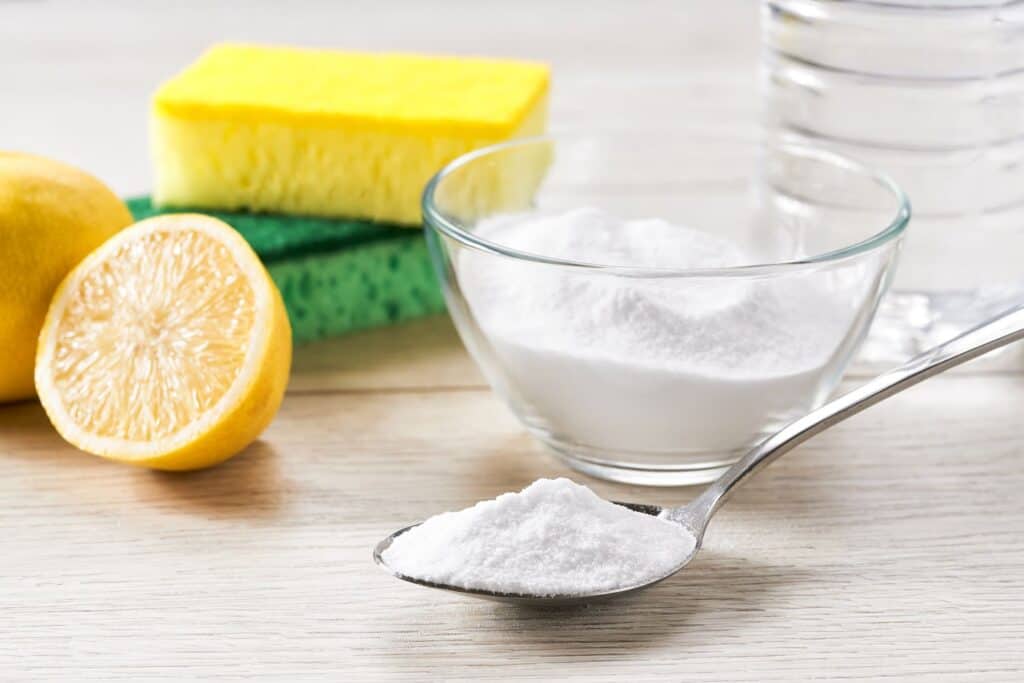
For alternative methods, explore grill brush alternatives.
Detailed Cleaning Methods
Keeping your grill in top shape means paying attention to every part, not just the grates. Here’s a detailed look at how to clean various parts of your grill without a brush.
Grate Cleaning
Cleaning grill grates is crucial for maintaining a healthy cooking surface. Here are specific techniques for each DIY method:
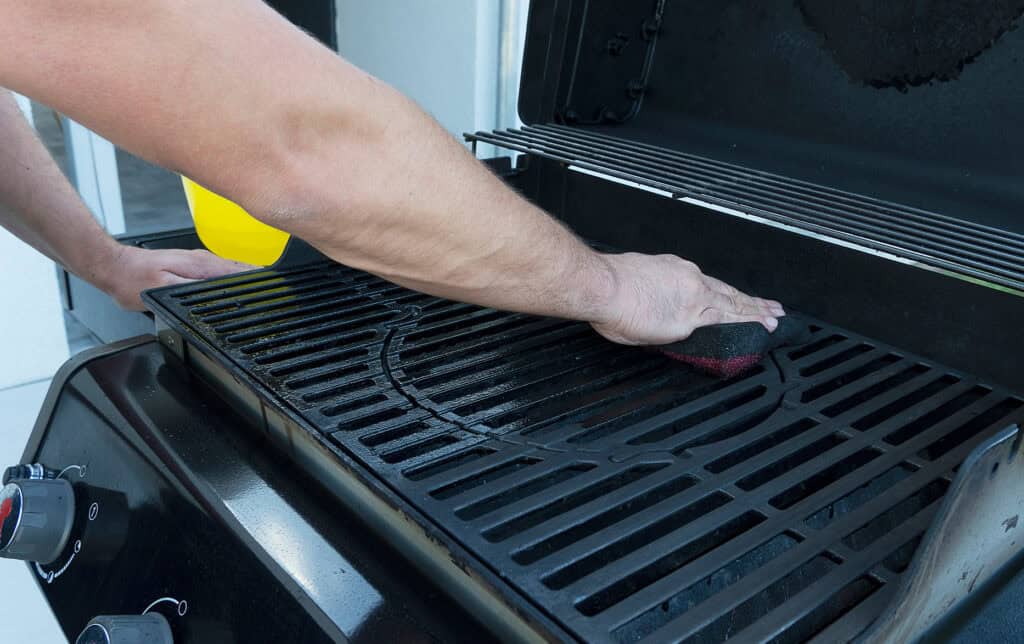
Using Aluminum Foil:
- Heat the Grill: Preheat the grill to burn off any remaining food particles.
- Foil Ball Scrubbing: Once heated, turn off the grill. Using heat-resistant gloves, scrub the grates with a ball of aluminum foil. The heat and rough texture will help remove residue.
- Rinse and Dry: Wipe down the grates with a damp cloth to remove any foil bits and debris. Dry thoroughly.
Using Vinegar Solution:
- Spray and Soak: Spray the vinegar solution generously on the cool grates and let it sit for 10-15 minutes.
- Wipe Clean: Use a soft cloth or sponge to scrub the grates. For tougher spots, apply more solution and scrub again.
- Rinse and Dry: Wipe with a damp cloth to remove any vinegar residue and dry thoroughly.
Using Baking Soda Paste:
- Apply Paste: Spread the baking soda paste on the grates, focusing on tough, greasy spots.
- Let Sit: Allow the paste to sit for 15-20 minutes.
- Scrub and Rinse: Use a damp cloth to scrub the grates, then rinse with water to remove any remaining baking soda. Dry thoroughly.
Interior Cleaning
Keeping the interior of your grill clean is essential for optimal performance and safety.
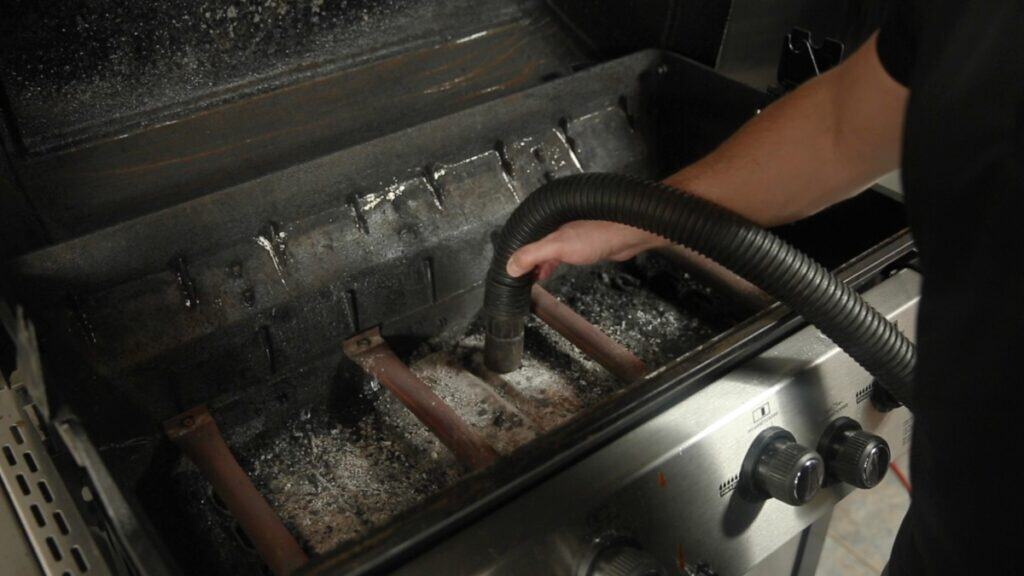
Burners and Other Components:
- Turn Off and Cool Down: Ensure the grill is off and completely cool before cleaning.
- Remove Grates and Flavorizer Bars: Take out the grates and flavorizer bars to access the burners and interior.
- Vacuum Loose Debris: Use a handheld vacuum or shop vac to remove loose debris and ash.
- Clean with Vinegar Solution:
- Spray: Spray the interior surfaces, including burners, with the vinegar solution.
- Scrub: Use a soft cloth or sponge to scrub away grease and grime. Be gentle around the burners to avoid damage.
- Rinse and Dry: Wipe down with a damp cloth and allow to air dry.
Grease Tray:
- Empty and Scrape: Remove the grease tray and empty it. Scrape off any hardened grease.
- Soak and Clean: Soak the tray in warm, soapy water, then scrub with a sponge.
- Rinse and Dry: Rinse thoroughly and dry before reinstalling.
Exterior and Finish
Maintaining the exterior of your grill keeps it looking great and extends its lifespan.
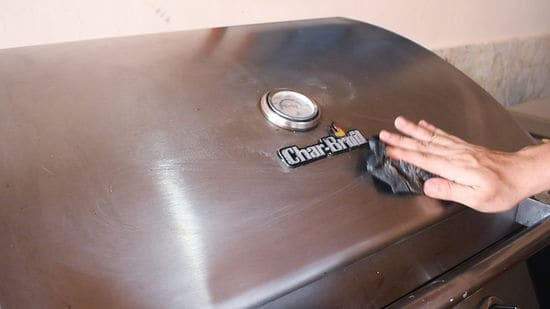
- Wipe Down Regularly: After each use, wipe down the exterior with a damp cloth to remove grease and dirt.
- Deep Clean with Vinegar Solution:
- Spray and Wipe: Spray the exterior with the vinegar solution and wipe with a soft cloth.
- Polish: For stainless steel grills, use a stainless steel cleaner or a mixture of vinegar and water for a shiny finish.
- Cover Your Grill: Use a grill cover when the grill is not in use to protect it from the elements.
For those who still use brushes when cleaning their BBQ grill, here’s how to clean your grill brush and when to replace it.
Aftercare and Maintenance
Keeping your grill in tip-top shape goes beyond just cleaning. Regular maintenance ensures it stays ready for your next BBQ and extends its lifespan. Here’s how to maintain your grill post-cleaning:
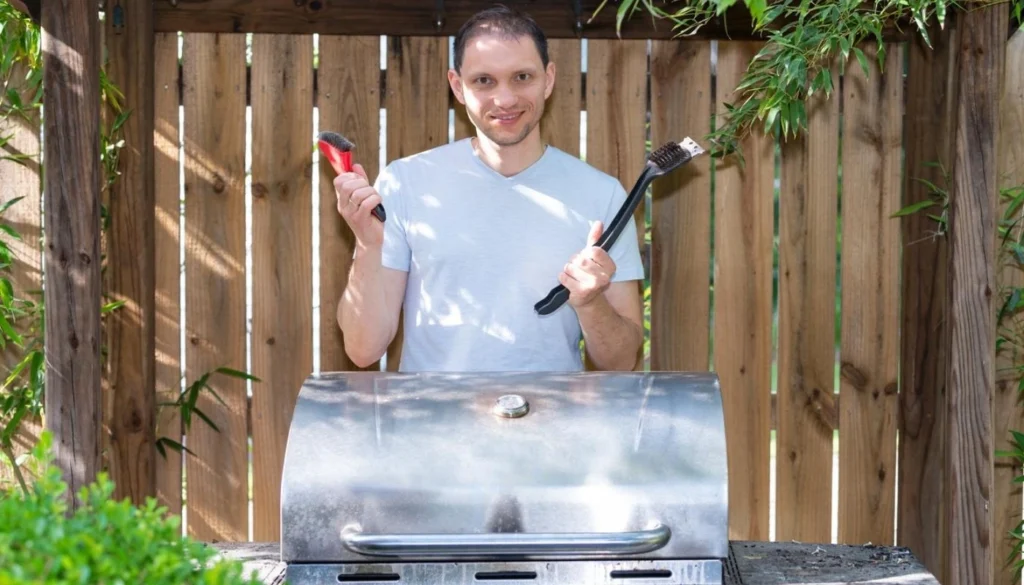
- Season Your Grates: After cleaning, lightly coat the grates with a high smoke point oil (like vegetable or canola oil) to prevent rust and make future cleaning easier. Use a cloth or paper towel to apply the oil evenly.
- Check for Wear and Tear: Inspect the grill for any signs of damage or wear, such as rust or cracks. Address these issues promptly to avoid bigger problems down the road.
- Clean the Drip Pan: Regularly check and clean the drip pan to prevent grease buildup, which can cause flare-ups.
- Store Properly: When not in use, cover your grill with a waterproof cover to protect it from the elements. If possible, store it in a sheltered area, especially during the off-season.
- Keep it Dry: Moisture is the enemy of grills. Ensure your grill is completely dry before covering or storing it to prevent rust and corrosion.
Safety Tips
Cleaning a grill can be straightforward, but it’s important to keep safety in mind. Here are some crucial safety tips:
- Turn Off the Grill: Always make sure your grill is turned off and has had time to cool down before you start cleaning. Hot surfaces can cause burns and other injuries.
- Use Heat-Resistant Gloves: When handling hot grates or using aluminum foil, wear heat-resistant gloves to protect your hands from burns.
- Avoid Harsh Chemicals: Stick to natural cleaning solutions like vinegar and baking soda. Harsh chemicals can leave residues that might contaminate your food.
- Ventilation is Key: If you’re using vinegar or any cleaning solution, ensure you’re working in a well-ventilated area to avoid inhaling fumes.
- Regular Inspection: Regularly check your grill for any loose parts, rust, or damage. Fixing these issues early can prevent accidents.
- Proper Disposal: Dispose of any debris or used cleaning materials properly. Avoid throwing grease or residues directly into your garden or regular trash, as they can attract pests.
Disclosure: Our blog contains affiliate links to products. We may receive a commission for purchases made through these links. However, this does not impact our reviews and comparisons. We try our best to keep things fair and balanced, in order to help you make the best choice for you.

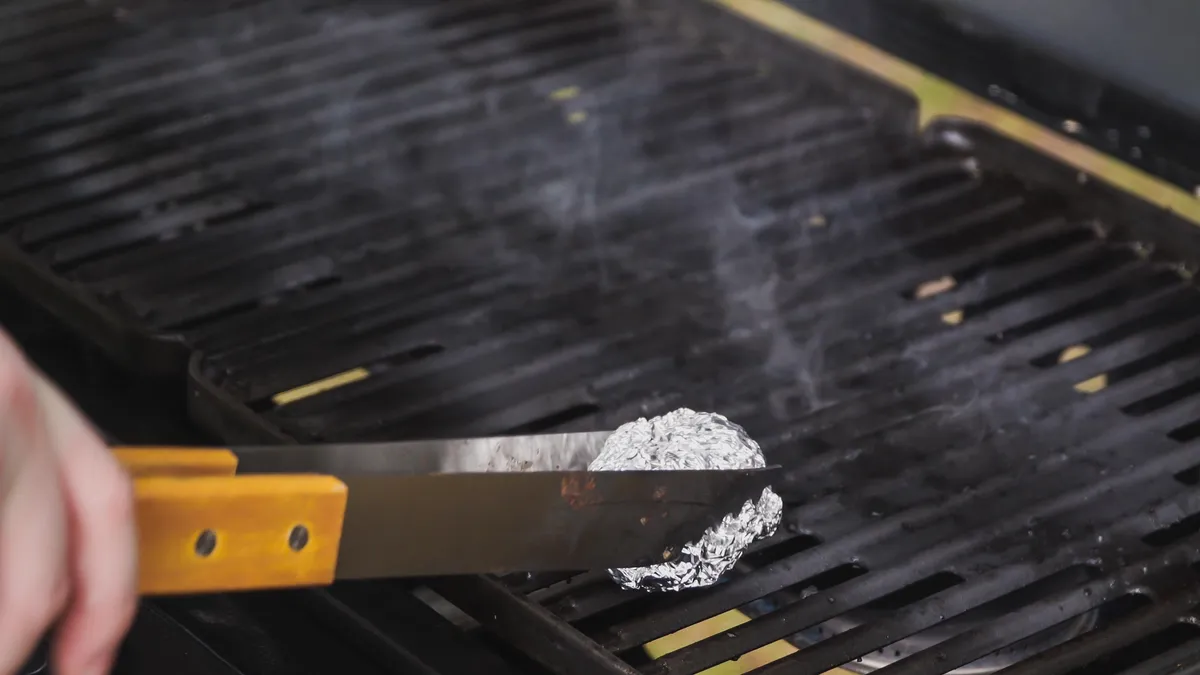
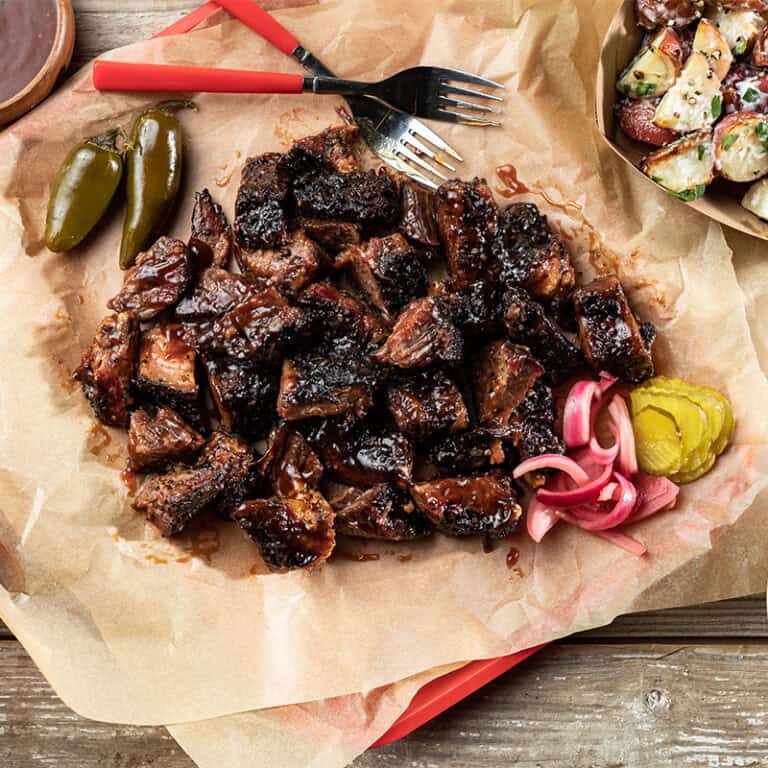
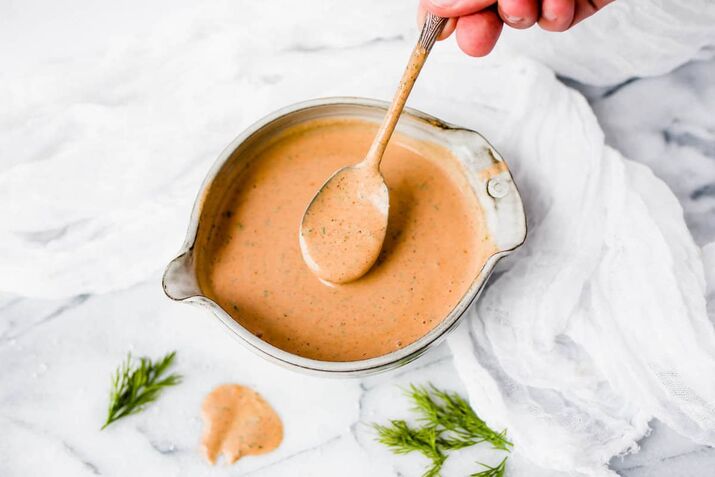
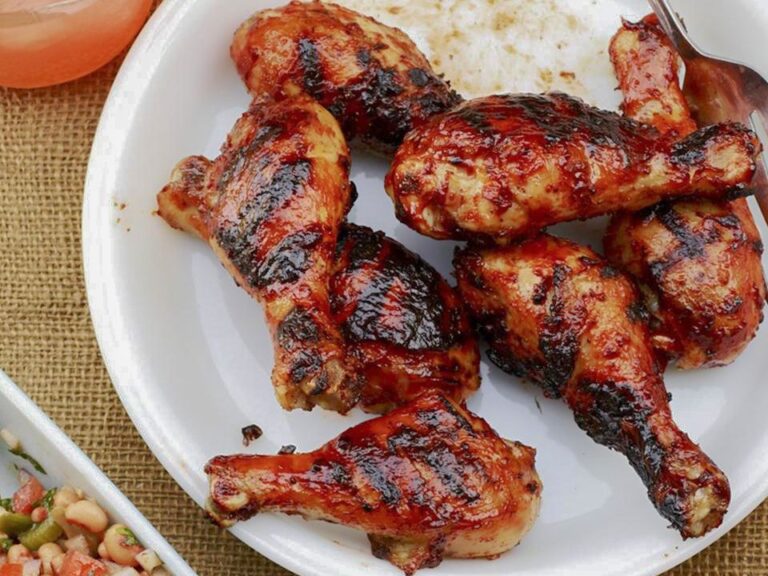
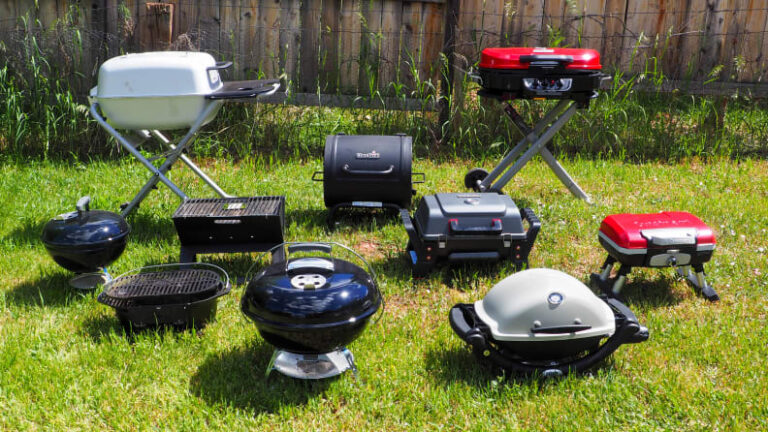
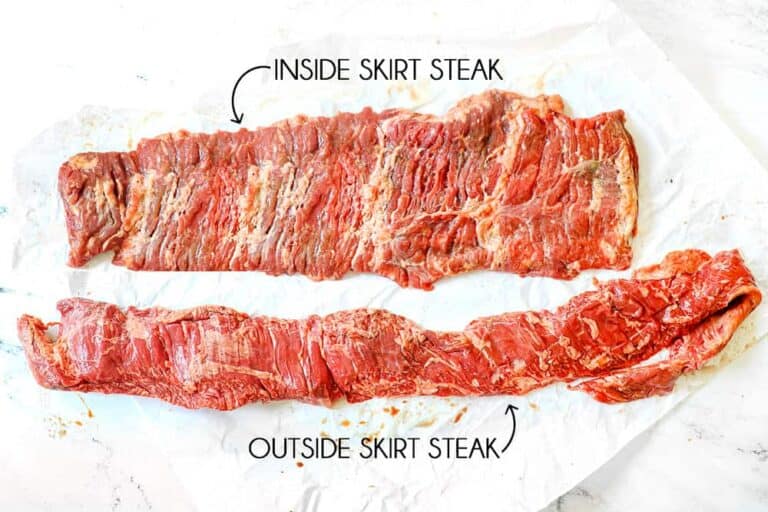
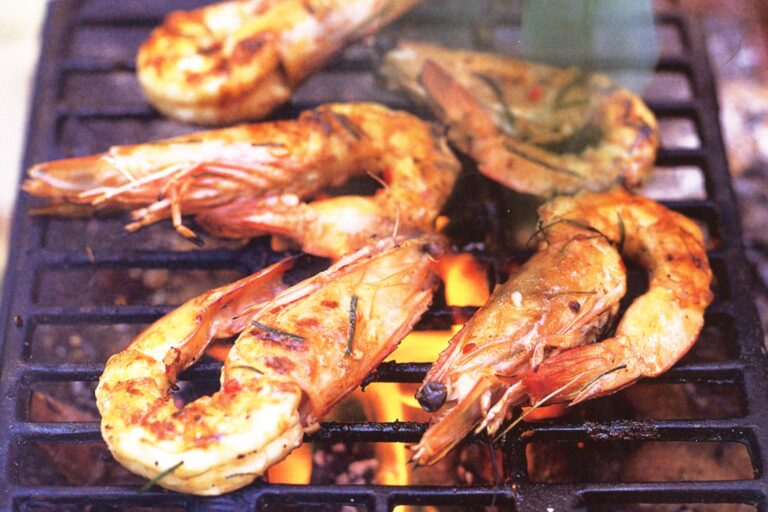
2 Comments